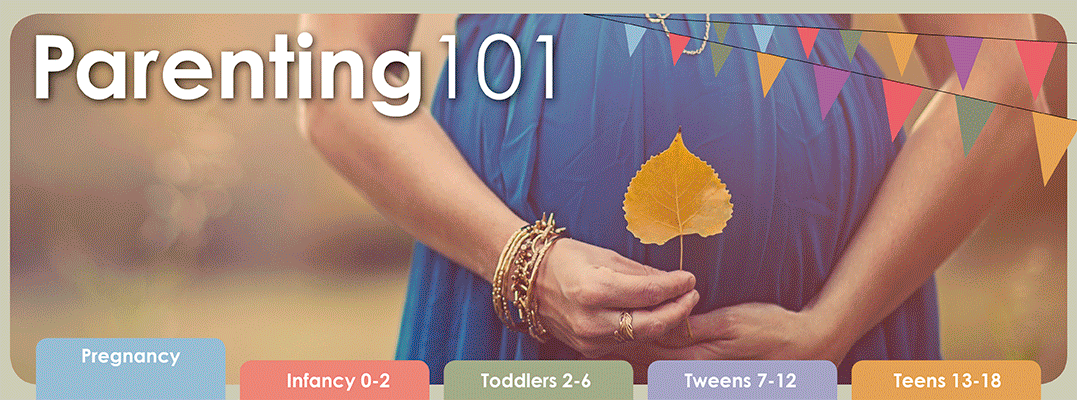Tweens
A must-have-list for tween parents
The tween years are an awkward phase for parents because your child isn’t a baby anymore and they aren’t exactly a teenager yet.
Those years in between tend to be filled with experiences that will challenge your abilities and knowledge as a parent while your child will have to deal with the urge of expressing themselves more, finding out what activities they enjoy and understanding themselves and how they feel.
We’ve brought you a five step list on how you can grow with your tween through this phase:
- Understand that communication is key and you need to speak to your tween as often as you can to find out where they stand and how they feel. They are maturing emotionally day by day and keeping track of what they are thinking and feeling is the best way to stay connected to them.
- You may not always know where you stand with your son or daughter and that’s okay. Trust the process – that they are growing and that your role as a parent will always come first. Your guidance and word should always be final, as long as your tween knows that then you will get through the tumultuous times.
- Have one on one time with your tween and make it a priority to find out how they are coping at school. Take interest in their personal lives and be there for them. Sometimes just listen – that may be all they need.
- Apologise when you are wrong. Set the precedent for a healthy relationship where everyone’s feelings are acknowledged and say sorry when you are wrong.
- Ask for help. You may be the parent but you may need help to understand your tween’s moods or behaviour now and then. Either way, there is nothing wrong with seeking help to grow your parenting skills and to be a better friend to your tween.
Home-schooling versus normal school
According to education.co.za, both homeschool and public school have multiple benefits for children and the decision to select a form of schooling depends on the parents and how they envision their child progressing in their academic career.
The education website encourages parents to thoroughly research both academic options with a view to understanding how the decision will impact every sphere of their child’s life.
“Take homeschool, for example, you can be 100 percent certain that that your child will be in a safe and calm environment daily. Advocates for homeschooling say children succeed better in a comfortable, safe environment that they are accustomed to,” the website states.
Children are also able to concentrate on their schoolwork and not be affected by peer pressure with homeschool.
With public schools, it has been identified that children who grow familiar with a busy and changing environment tend to become more successful as they learn and are equipped with lifelong skills which will enable them to make decisions in their personal and professional lives.
However, the disadvantages of homeschool are that children become less socialised and they may have challenges with adapting to changing environments and connecting with their peers.
While with public school, the drawbacks are that children do not always get the help they need because of a large number of pupils in a class room.
This ratio can be 1:20 in primary school and in high school it can go up to 1:30. Consequently, there may have to be self-directed learning or parents may have to get a tutor for after school lessons to attend to their child’s educational needs.
Ultimately, the decision lies with the parents and their goal in developing their child’s academic needs to enable them to cope and become successful professionally.
The case for public school
- Children get to learn in a stimulated environment
- The exposure to children from various backgrounds leads to specialised social skills where the emotional intelligence of kids are developed
- There are many extra mural activities both sport and cultural which kids can participate in
- Parents can work without any issue as their children are at school with the options of after care
- There is a level of competition in public schooling which can be healthy as kids learn to adapt and become results focused in their personal lives and later on professionally
Why homeschooling could be the way to go
- It is less expensive then public or private education where fees, extra mural activities, uniforms, stationery and excursions can cost thousands per year.
- Children can get paced according to their level of understanding
- Stress and anxiety from peer pressure and the school environment is limited, allowing kids to develop their emotional intelligence in a safe and familiar background
- Attention is entirely focused on the child so their needs are taken into consideration with problems being able to be identified early on
- Gifted children can work faster through their workload while slow kids can get individualised help to work through their weaknesses
- When taught by parents, homeschooling provides an opportunity for bonding and a closer relationship
Watch this video on the pros and cons of homeschool and public school
Additional sources: www.homeducator.com, www.education.co.za
How to build coping skills in your tween
Children experience anxiety and stress emanating from the pressures of school and maintaining a social life balance together with their duties and responsibilities at home. As a parent, the onus is on you to prepare them for the pressures of the world which escalate as they grow older.
You can help them develop healthy ways to cope with stress and solve problems that may arise. We’ve rounded up a few ideas on how you can equip your tween to cope.
Create a safe environment
The environment at home should be one where your tween is able express themselves freely and honestly. Make this possible by asking your family to talk about their day and how their experience at school was. Each family member should contribute and everyone should listen and ask questions. Genuine interest in how your tween is doing at school and elsewhere will enable him to speak up about what’s bothering him.
Listen
Sometimes it’s best to just listen and hear your tween out. As the parent you may be keen to offer advice and immediately come up with solutions to an issue your child may be facing but allow her space to think about how she can solve her own problems. Offer advice after you have heard them out and do so in a gentle and loving manner.
Acknowledge your child’s feelings
If you can see that your child is bothered by something, say so and name what you think your child may be feeling. This can help them to identify their feelings and they will appreciate you acknowledging their feelings.
Help your child come up with solutions
Take the lead in helping your child think of solutions to the problems they have. They should know that they are not alone and have you to guide them and to step into make things better. If they are being bullied then that would require immediate action for you to see the teacher and parents of the bully.
Assist your child to form healthy coping tactics
The best way to do this is by showing them how you cope with issues. Let them see you make decisions and communicate how you deal with challenges. They should be able to see you journal, cry, laugh, go to the spa for a massage or just talk to a friend. This will show them how to cope in future using healthy tactics.
How to encourage kids to get outside and play
Playing outdoors is a win-win situation for everyone in the house. Your tween gets to explore and enjoy the weather while you get to focus on completing important tasks or getting rest.
But how can you get your child to go outdoors more? Follow our tips and you’ll find out exactly how to make your tween more adventurous.
- Take indoor toys outdoors
Position some of your child’s favourite toys outside. This will encourage them to play outside instead of indoors and get them into a routine of dividing their time outside and indoors. - Teddy bear picnics
Host a tea party with all your tween’s best dolls outside.
- Trip to the park
Not all of us are lucky enough to have big gardens to play in, so why not head out to your local park and play on the swings?
- Planting seeds and watering plants
Create your own garden and plant seeds with the help of your little one. Watch the seeds grow into plants and give them the responsibility of watering the garden. This way they’ll look forward to going outside and checking up on their plants.
- Building a den or treehouse
Build a treehouse where your tween can escape to and play. On some days, they can even camp out at the treehouse provided there is supervision.
- Bird watching
If you don’t already have one, get a bird table and some nuts and seeds and watch out for the different birds who visit the garden with your little one. They will learn the different species and will love to see rare or unusual birds coming for a snack.
Making homework faster and easier
Kids are assigned homework and large amounts of it almost on an everyday basis.
If the homework assigned is excessive, or if the content is too difficult for a child’s capabilities, working through the homework sufficiently and effectively can take time.
This can make it a challenge for kids to understand their assignments and lead to stress which can affect your tween’s self-confidence and ability to handle large volumes of homework at a time.
Even very bright and organized kids can experience undue stress from homework, and those with attention problems, learning disabilities or mood symptoms can become disorganized and deregulated, creating a vicious cycle.
Here are five tips to make homework time more faster and easier
- Use a timer. This works particularly well for kids who may struggle balancing and working according to a schedule or time. Use a timer to prompt them to work faster. Reset it again if needed. Or, try “if you can sit down and start working in the next 5 minutes, you can earn ‘x’as a reward.”
- Invest in a tutor who will visit your tween periodically to help with the workload. This is especially helpful when both parents are working late or have other demands.
- Ban social media. These are distractions which will take away from time which could be used to complete homework earlier.
- Be available. Don’t do their work for them, but stay nearby, help guide them and keep giving positive feedback.
- Don’t let them multitask.Let your tween work on the hardest subject first then tackle the next.
Tips to make chores fun
The scene is all too familiar. You ask your daughter to do the dishes and immediately her shoulders droop, her smiles fades and she mumbles while walking less than excitedly to the kitchen. Fact is kids don’t like doing chores.
Most of them dread them with their whole being but it’s a necessary part of life, instilling responsibility and creating a work ethic in them that will stand them in good stead when they grow older.
Parents sometimes have to trick or give their children incentives to do the chores. We’ve come up with a list of tips and tricks that will have your tween skipping on their way to mowing the lawn instead of sulking.
Have a song ready for each chore
Instead of doing a chore in total silence, consider coming up with a song to accompany the chore. This can make the chore fun and something to look forward to. Task each child to create a song for the chore and offer a prize for the best chore song.
Give out an award for a completed chore
With each completed chore, your tween can get a gold star or a reward. Make the reward age appropriate and a treat so that they can start looking forward to completing chores.
Get the whole family to chip in
Make it a family occasion by asking everyone to contribute and take responsibility for a chore. This can be a great bonding session where everyone is able to accomplish a task and have fun while at it. Just keep everyone focused by reminding them that each is working towards a common goal.
Encourage your tween
Keep the chore conversation light and full of positivity so that your tween is encouraged to work hard, do their best and not complain. Once they receive positive feedback, doing chores will become a positive activity which they will end up looking forward to.
Hand the chore responsibility over
Keep track of their progress as they do each chore but hand the responsibility of coming up with a chore over to your kids. This way they’ll come up with innovative ways to keep the house clean or they will think of places to clean that everyone else may have neglected. This results in a win-win situation for everyone.
What to do when your child gets bad grades
We want our children to excel at school and get good grades. It’s important to establish that kids doing well at school is what every parent wants to see happen for their little one.
Yet as much as we want them to work hard and reap the rewards, we also need to be realistic about how our children’s academic endeavours may not always live up to our expectations.
If your child gets bad grades, sit down with them and talk to find out what went wrong.
Meeting
Schedule a meeting that is private where the two of you can talk without anyone overhearing. It’s better to ask one parent to handle the conversation as your tween might see it as an ambush if both parents are present. Give your child an opportunity to explain what went wrong and to ask for help or support. Be calm and hear your tween out.
One on one
After the initial meeting, schedule regular check-ins with your tween. This should be done casually so that your child doesn’t feel like they are under surveillance.
Support
Offer as much support as you can so that your tween knows that there is assistance to get them back on track.
Encouragement
Besides support, encourage your child by being there for them whenever they need to talk and by providing them with books, movies and activities that will propel them to work hard and to excel at school.
Tutoring
A tutor can give your child academic support which will solve their school problems and misunderstandings in a way that you may not be able to. Consider investing in one to enable your tween to have additional study aides and academic advice so that they can produce better results.
Pregnancy

Natural remedies for morning sickness
Nothing can dampen the excitement of pregnancy like morning sickness.
The name, however, is very misleading as morning sickness can happen at any time during the day or night. It is most common during the first trimester, but for some women morning sickness lingers throughout pregnancy.
Infancy 0-2

What you need to know about caesareans
A Caesarean section (C/S) is performed when natural birth is impossible or unsafe.
The operation may be performed before labour begins, if there are medical reasons for not going through labour and natural birth, or if the health of the mother or baby may be in danger.
Toddlers 2-6

What you need to know about SIDS
Sudden infant death syndrome (SIDS) is the unexplained death, usually during sleep, of a seemingly healthy baby less than a year old.
SIDS is sometimes known as crib death because the infants often die in their cribs
Teens 13-18

Identifying a bully
Bullying is when one child picks on another child repeatedly. It can be physical, verbal or over the internet and social media.
Funny Videos

Video Blog
Here we have the funniest, cutest and most adorable videos of children doing the most funny things you could ever think of!





